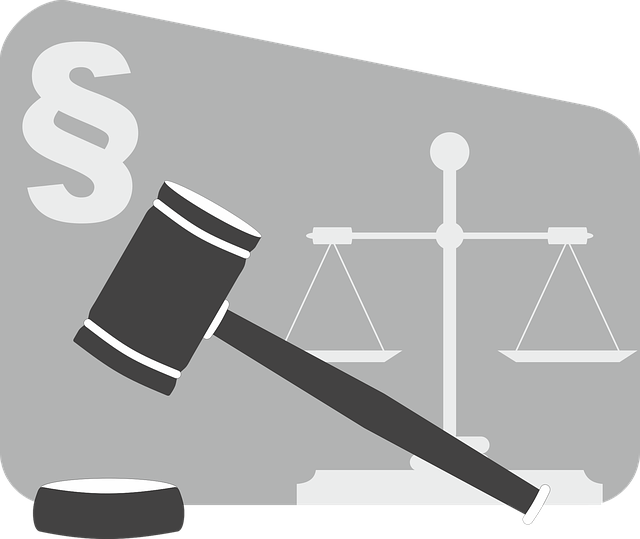The RF Securities Industry Regulation is a powerful tool for protecting consumers from fraud, ensuring transparency, and promoting fair practices. High-profile lawsuits against financial institutions highlight the effectiveness of these regulations, with successful examples setting precedents for future claims against securities firms engaging in misconduct like insider trading or market manipulation. Meticulous investigations are crucial in such cases to ensure accountability, enabling consumers to seek justice and compensation. Notable cases have reshaped industry standards, emphasizing preventive measures over punitive actions, ultimately fostering more robust regulatory frameworks.
“The RF Securities Industry, a cornerstone of global financial markets, operates under stringent regulations aimed at consumer protection. This article delves into the intricate framework governing this sector, offering insights on how consumers can navigate and assert their rights. We explore successful examples of consumer protection lawsuits against RF securities firms, revealing strategies that have led to significant outcomes. By examining these cases, investors gain valuable takeaways for understanding and safeguarding their interests in today’s dynamic financial landscape.”
- Understanding RF Securities Industry Regulation: A Framework for Consumer Protection
- Strategies and Tactics in Successful Consumer Protection Lawsuits Against RF Securities Firms
- Key Takeaways: Lessons from Notable Examples of RF Securities Consumer Protection Litigation
Understanding RF Securities Industry Regulation: A Framework for Consumer Protection

The RF Securities Industry Regulation is a critical framework designed to safeguard consumers in the financial markets. At its core, this regulation aims to prevent fraudulent activities, ensure transparency, and promote fair practices within the industry. By implementing stringent rules and guidelines, regulatory bodies hold securities firms and their agents accountable for their actions. This oversight is crucial in protecting investors from potential losses caused by misconduct, such as insider trading, market manipulation, or inadequate disclosure.
One of the key aspects of this regulation is the enforcement of consumer protection laws, which have led to numerous successful lawsuits against financial institutions. Examples of such cases include high-profile white-collar defense strategies where firms have achieved winning challenging defense verdicts. These victories highlight the importance of robust regulations and demonstrate an unprecedented track record in holding wrongdoers accountable while offering recourse to aggrieved consumers. Through such legal precedents, the securities industry continues to evolve, ensuring that market participants adhere to ethical standards and prioritize consumer welfare.
Strategies and Tactics in Successful Consumer Protection Lawsuits Against RF Securities Firms

In the realm of financial services, consumer protection lawsuits play a pivotal role in upholding justice and safeguarding investors from fraudulent practices. When it comes to RF securities firms, these legal actions often serve as powerful deterrents and catalysts for change. Examples of successful consumer protection lawsuits against RF securities companies have set precedents, demonstrating the effectiveness of strategic tactics in holding these entities accountable. By examining these cases, potential plaintiffs can gain valuable insights into building strong claims.
One key strategy involves uncovering and presenting evidence of fraudulent schemes, such as misrepresenting investment opportunities or manipulating market prices. These lawsuits often target white-collar and economic crimes, where complex financial frauds are orchestrated by corporate and individual clients alike. Successfully navigating these cases requires meticulous investigation to avoid indictment while ensuring the firm’s involvement in unethical practices is exposed. Through comprehensive legal strategies, consumers can seek redress for losses incurred due to these securities violations.
Key Takeaways: Lessons from Notable Examples of RF Securities Consumer Protection Litigation

Notable examples of RF securities consumer protection litigation offer key takeaways that are invaluable to navigating high-stakes cases today. One prominent case, involving a major financial institution, highlighted the importance of robust compliance programs and transparent practices. By implementing stringent internal controls and fostering a culture of ethical conduct, the firm successfully avoided indictment, demonstrating the power of proactive measures in safeguarding investor interests.
These examples underscore the fact that effective regulation isn’t just about punishment; it’s about prevention. Lessons from such successful consumer protection lawsuits have reshaped industry standards, influencing philanthropic and political communities alike to prioritize oversight and accountability. This shift has resulted in more robust regulatory frameworks, ensuring fair practices and greater investor confidence in the RF securities market.
The regulation of the RF securities industry is paramount for safeguarding investors. By understanding the framework and implementing robust consumer protection strategies, regulatory bodies can effectively combat unethical practices. As evidenced by successful examples of lawsuits against RF securities firms, holding these entities accountable fosters transparency and trust in the market. These cases serve as a testament to the power of consumer protection litigation in reshaping the industry for the better, ultimately ensuring fair and transparent trading practices.






